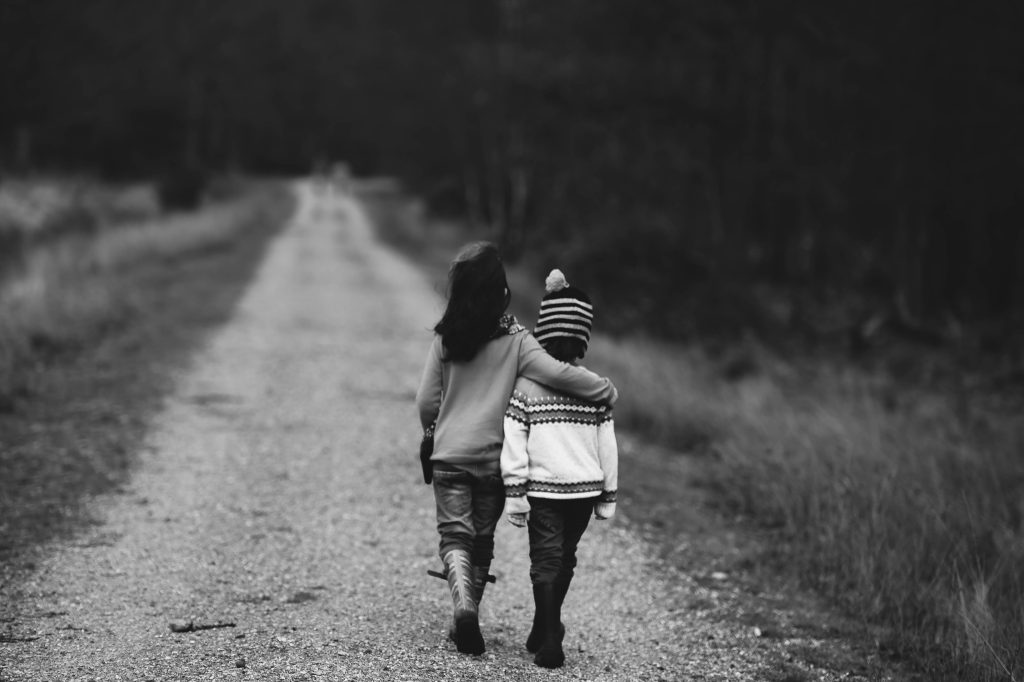It’s back to school season, an exciting time for parents and kids alike. While the focus is on children right now, we wanted to take this opportunity to discuss the important topic of children and homelessness.
When you think of the homeless population, chances are homeless adults come to mind. But the sad reality is that many children face homelessness too. Being homeless has an array of negative consequences on the health and wellbeing of children.
In this blog post, we’ll discuss children and homelessness, outlining the scope of the problem, why it happens, how it impacts children, and how you can help.
And they were bringing children to him that he might touch them, and the disciples rebuked them. But when Jesus saw it, he was indignant and said to them, “Let the children come to me; do not hinder them, for to such belongs the kingdom of God. (Mark 10: 13-14)
How Many Children Are Homeless?
Counting the homeless population is difficult, so it is hard to get an accurate count of the number of children who experience homelessness across America. However, we do know that in January 2020, there were 580,466 people experiencing homelessness in the US, and 30 percent (about 174,000) were families with children.
In Indiana specifically, an estimated 5,625 people experience homelessness on any given day. This includes an estimated 482 family households.
Further, according to public school data, 18,252 Indiana public school students experienced homelessness throughout the course of the 2018-2019 school year.
These statistics demonstrate that homelessness is a huge problem for children in our country and our state.
Why Do Children Become Homeless?
Many homeless children are accompanied by adults, which means that their adult parents or caregivers became homeless and so they became homeless too. Some of the top causes of homelessness for families are:
- Insufficient income
- Job loss
- Lack of affordable housing
- Eviction
- Domestic violence
- Substance abuse
- Mental health issues
- Physical health problems or medical conditions
Meanwhile, homeless children may also be unaccompanied by adults, having run away from home for a variety of reasons, including abuse, divorce/separation, death in the family, family financial worries, substance abuse, problems at school, or other conflicts at home.
Impacts of Homelessness on Children
Regardless of the reason why a child becomes homeless, homelessness has a tremendous impact on children, including their health, sense of safety, education, and overall development. Some of the impacts include:
- Higher levels of emotional and behavioral problems
- Increased risk for serious health problems
- Problems at school including lower academic performance, repeating a grade, being expelled, and dropping out
- Increased risk of drug or alcohol abuse disorders
- Social isolation from peers
- Trouble sleeping
- Anxiety caused by uncertainty and disruption
Research suggests that many of these problems (and anxiety, in particular) remain after a child is rehoused. This emphasizes “the need to understand the effect that homelessness has on children and the ways in which these effects can be minimized.”
How Can I Help?
Homelessness is a problem for children across America, throughout Indiana, and even in our regional area of La Porte County. One way you can help is by partnering with Interfaith Community PADS.
In 2017, we expanded our program from a men’s-only shelter to also serve the needs of women and children facing homelessness. Children must always be accompanied by their female parent/guardian, and so far this year, we have had several children stay with us. Here are the statistics for 2022 as of August:
- Child guests: 6
- Child bed nights: 274
- Child meals: 548
- Children housed: 4
In addition to food and shelter, ICPADS can help provide a sense of stability to children facing anxiety caused by homelessness. We also work with community partners to address the issues that are causing homeliness, and get families into permanent housing.There are many ways to partner with ICPADS. Consider making a monetary gift, donating goods, or volunteering. Together we can help children facing homeless and serve the needs of homeless families in our community.
